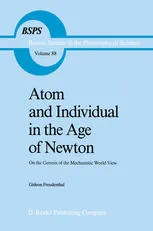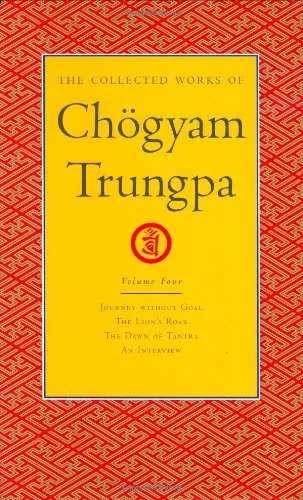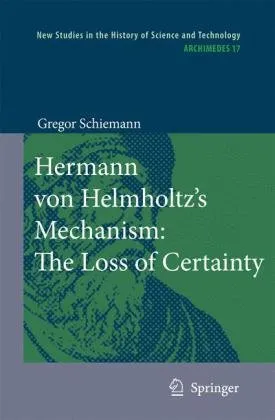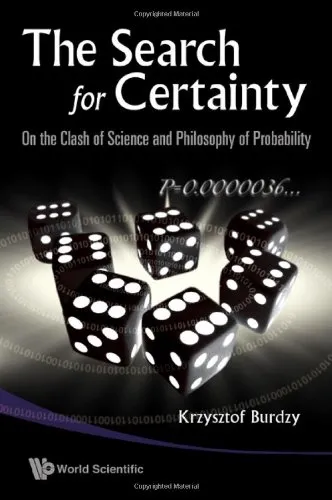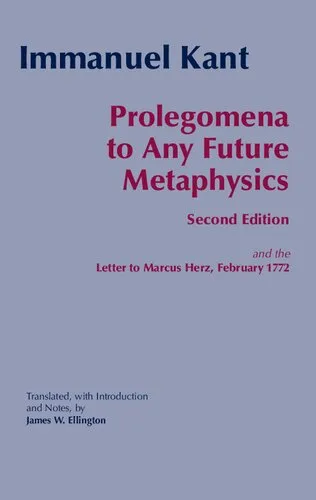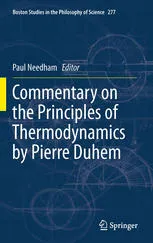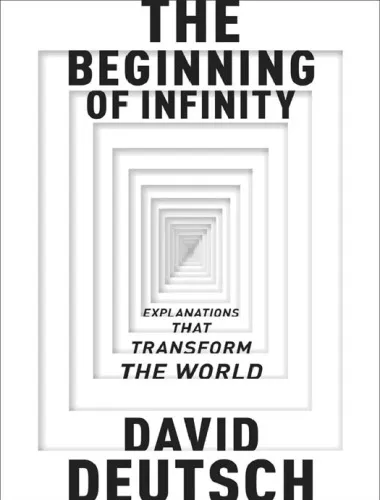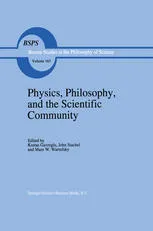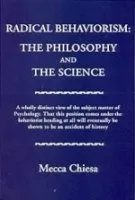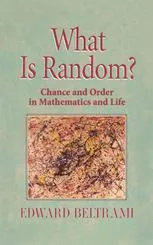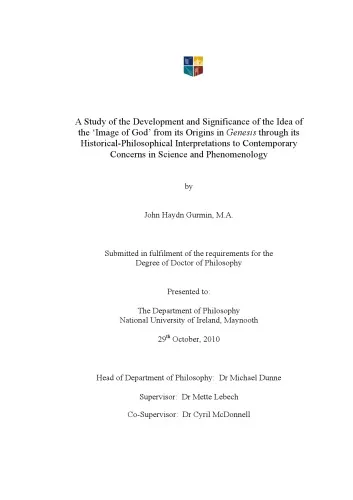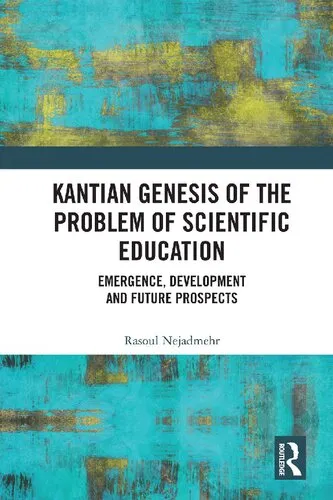Atom and Individual in the Age of Newton: On the Genesis of the Mechanistic World View
5.0
بر اساس نظر کاربران

شما میتونید سوالاتتون در باره کتاب رو از هوش مصنوعیش بعد از ورود بپرسید
هر دانلود یا پرسش از هوش مصنوعی 2 امتیاز لازم دارد، برای بدست آوردن امتیاز رایگان، به صفحه ی راهنمای امتیازات سر بزنید و یک سری کار ارزشمند انجام بدینکتاب های مرتبط:
معرفی کتاب "Atom and Individual in the Age of Newton"
کتاب Atom and Individual in the Age of Newton: On the Genesis of the Mechanistic World View اثر گیدئون فریودنتال، پژوهشی عمیق و روشمند در باب شکلگیری دیدگاه مکانیکی جهان در عصر نیوتن است. این کتاب با رویکردی فلسفی-علمی، به دنبال درک ارتباط بین مفاهیم علمی بنیادین و تأثیر آنها بر تفکر انسانی و اجتماعی است. فریودنتال این فرایند را در بستری از تحولات تاریخی و فکری دوران مدرن آغازین بررسی میکند و پاسخهای روشنگرانهای به پرسشهای بنیادین درباب رابطه بین معرفتشناسی، علوم طبیعی، و فرد در این دوران ارائه میدهد.
خلاصهای از کتاب
این کتاب از دو دیدگاه کلان به موضوع میپردازد: نخست بررسی تکوین مفهوم atomism بهعنوان بنیادیترین ایده علمی در دوران نیوتن؛ و دوم تحلیل چگونگی پیوند این ایده با مفهوم فردگرایی در فلسفه و اجتماع. نویسنده به کاوش عمیق در آثار نیوتن، لایبنیتس، دکارت و دیگر فیلسوفان و دانشمندان عصر پرداخته و با تحلیل دقیق، چگونگی ساختهشدن دیدگاه مکانیکی را که بعدها به جهانبینی غالب علمی تبدیل شد، نشان میدهد. او مفهوم "اتم" را از محیط علمی به محیط اجتماعی نیز ارجاع میدهد و نشان میدهد که چگونه مفهوم فردگرایانه انسان به همان شیوهای که مفهوم اتم در فیزیک تکامل یافت، بسط پیدا کرده است.
نویسنده همچنین استدلال میکند که علم مکانیکی نه تنها در طبیعت، بلکه در نظم اجتماعی نیز لحاظ شد. این دیدگاه جدید جهانبینی، نه تنها تغییرات مهمی در علم روز به وجود آورد بلکه تأثیر شگرفی بر مدرنیته و مفاهیم فلسفی مانند حق، آزادی و استقلال فرد داشت.
نکات کلیدی از کتاب
- توضیح منشأ و تحول مفاهیم علمی اصلی در قرن 17 و 18، با محوریت atomism.
- ارتباط میان مفهوم اتم و فردگرایی در فلسفه و علوم اجتماعی.
- تبیین جهانبینی مکانیکی و تأثیر آن بر مدرنیته و علم مدرن.
- نقد تحولات معرفتشناسانه و کارکرد علوم در نظامهای اجتماعی و اخلاقی.
جملات مشهور از کتاب
“The mechanistic worldview did not arise solely as a descriptive schema for physical phenomena; it also reflected and shaped fundamental ideas about the structure of human society and the nature of the individual.”
“The atom became a metaphor not only for the indivisible units of matter but also for the autonomous persons within a society founded on individual rights.”
چرا این کتاب اهمیت دارد؟
کتاب Atom and Individual in the Age of Newton یکی از آثار برجستهای است که بر اهمیت پیوند میان علم، فلسفه و تاریخ تأکید دارد. این کتاب به ما کمک میکند که نه تنها تفسیر و درک عمیقتری از تحولات علمی نجوم و فیزیک قرون گذشته داشته باشیم، بلکه ارتباط آنها با مفاهیم کلیدی مدرنیته را کشف کنیم. اندیشههای مطرحشده در این اثر، نوعی فراخوان برای تفکر انتقادی در باب چگونگی تأثیر علم بر جهانبینی اجتماعی-فلسفی ما است.
مطالعه این کتاب برای علاقهمندان تاریخ علم و فلسفه، دانشجویان علوم انسانی، و هر فردی که میخواهد رابطه پیچیده میان اصطلاحات علمی و مفاهیم اجتماعی و فردگرایانه را بفهمد، ضروری است.
Introduction to "Atom and Individual in the Age of Newton: On the Genesis of the Mechanistic World View"
Written by Gideon Freudenthal, "Atom and Individual in the Age of Newton" is a profound philosophical and historical exploration of the emergence and consolidation of the mechanistic worldview in the context of early modern science. The book delves into a pivotal moment in human thought, where the intellectual foundations of modern science—especially physics and its mechanistic principles—were laid. It links these developments to broader philosophical ideas about individuality, agency, and the structure of society.
The mechanistic worldview, as popularized by figures such as Isaac Newton, was characterized by an understanding of nature as a vast, orderly machine operating according to universal laws. This revolutionary shift in perspective intersected with changes in philosophy, religion, and social thought, sparking powerful debates about determinism, free will, and individualism. Freudenthal meticulously investigates these intersections, situating the atomistic and mechanistic ideas within their historical and intellectual milieu. The result is a rich, interdisciplinary narrative that illuminates not only the genesis of the mechanistic worldview, but also its broader implications for how we understand both nature and ourselves.
Detailed Summary of the Book
The book is structured to guide the reader through the historical development of mechanistic thought, beginning with its philosophical and scientific roots in the ancient world, progressing through the Renaissance, and culminating in the Newtonian synthesis during the seventeenth century. Freudenthal focuses on how the adoption of atomism and mechanistic theories reshaped scientific investigation and influenced broader societal views on individuality and order.
In early sections, the author traces the revival of atomistic philosophy in the Renaissance and its reception by key figures such as Descartes and Boyle. These thinkers helped lay the groundwork for a mechanistic interpretation of nature by rejecting Aristotelian teleology and embracing explanations based on particles and motion. Freudenthal emphasizes how this transition was not merely scientific but deeply philosophical, reflecting shifts in how individuals related to nature and each other.
As the book progresses, its attention turns to Isaac Newton and his monumental contributions to physics, particularly the formulation of universal gravitation and the laws of motion. Freudenthal elucidates how Newton's ideas exemplified the mechanistic worldview and firmly established it as the dominant paradigm of the time. However, the book also critically examines the contradictions and tensions that emerged within this framework, such as debates about the role of God in sustaining the cosmic order and the philosophical implications of determinism.
In later chapters, Freudenthal explores how the mechanistic worldview influenced ideas about human individuality in the context of Enlightenment thought. By drawing analogies between atoms in motion and human beings as autonomous actors, thinkers of this period came to new conclusions about society, morality, and political organization. The book concludes by reflecting on the enduring legacy of this synthesis and its implications for our current understanding of science, nature, and human agency.
Key Takeaways
- The mechanistic worldview fundamentally transformed the way humans understood nature by introducing universal laws and removing teleological explanations.
- Atomism served as both a physical theory and a metaphor for individuality, influencing not only science but also social and political thought.
- Newton’s synthesis represents a culmination of centuries of philosophical and scientific developments, but it also introduced unresolved tensions, particularly concerning determinism and divine intervention.
- The mechanistic approach to science laid the groundwork for modern physics, but its philosophical implications continue to spark debate to this day.
Famous Quotes from the Book
"The mechanistic worldview is not merely a picture of nature but a mirror in which humanity has sought to discern its own reflection."
"Newton’s cosmos, ordered by natural laws yet sustained by divine will, encapsulates the paradoxes of a worldview that is both deeply deterministic and profoundly theological."
"Atoms in motion are not just physical entities; they are symbols of individuality, freedom, and the pursuit of knowledge."
Why This Book Matters
"Atom and Individual in the Age of Newton" is an essential read for those interested in the history and philosophy of science. By exploring the emergence of the mechanistic worldview, the book provides invaluable insights into the intellectual transformations that gave rise to modern science and shaped contemporary thought. Freudenthal masterfully bridges disciplines, showing how scientific ideas are inextricably linked to broader cultural and philosophical currents.
For scholars, researchers, and curious readers alike, this book offers a rich, thought-provoking narrative that illuminates not only the past but also the enduring relevance of these ideas in the present. By understanding the origins of the mechanistic worldview, we gain deeper insight into the philosophical assumptions underpinning modern science and technology, and we better appreciate the complexities and contradictions of our own age.
دانلود رایگان مستقیم
شما میتونید سوالاتتون در باره کتاب رو از هوش مصنوعیش بعد از ورود بپرسید
دسترسی به کتابها از طریق پلتفرمهای قانونی و کتابخانههای عمومی نه تنها از حقوق نویسندگان و ناشران حمایت میکند، بلکه به پایداری فرهنگ کتابخوانی نیز کمک میرساند. پیش از دانلود، لحظهای به بررسی این گزینهها فکر کنید.
این کتاب رو در پلتفرم های دیگه ببینید
WorldCat به شما کمک میکنه تا کتاب ها رو در کتابخانه های سراسر دنیا پیدا کنید
امتیازها، نظرات تخصصی و صحبت ها درباره کتاب را در Goodreads ببینید
کتابهای کمیاب یا دست دوم را در AbeBooks پیدا کنید و بخرید
1478
بازدید5.0
امتیاز1
نظر98%
رضایتنظرات:
5.0
بر اساس 1 نظر کاربران
lilliixxx
8 ژانویه 2025، ساعت 23:34
Excellent book, convenient to read, great lecture
Questions & Answers
Ask questions about this book or help others by answering
No questions yet. Be the first to ask!
